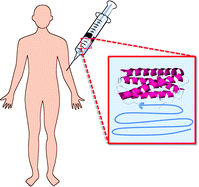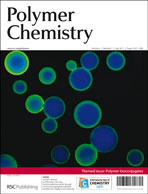FDA-approved poly(ethylene glycol)–protein conjugate drugs
Abstract
PEGylation or covalent attachment of poly(ethylene glycol) improves the pharmacokinetic properties of

- This article is part of the themed collection: Polymer Bioconjugates

 Please wait while we load your content...
Please wait while we load your content...